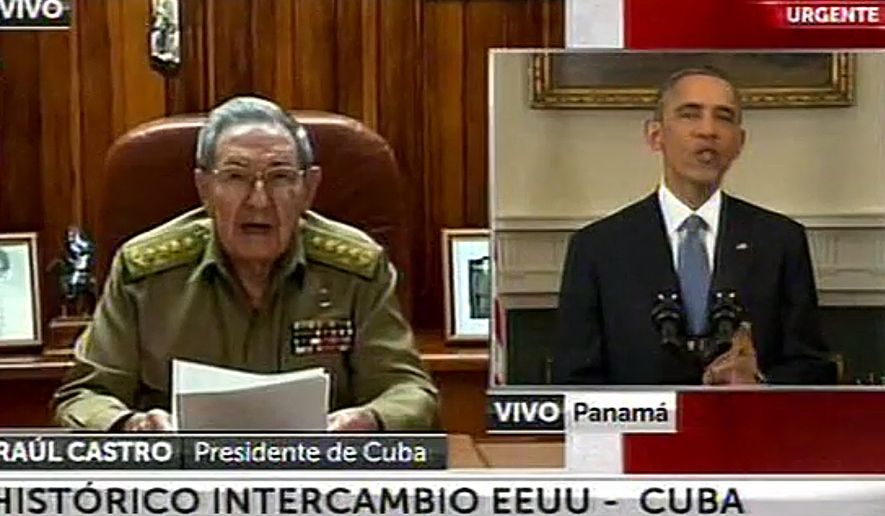OPINION:
The embargo against Cuba hasn’t exactly been a stellar success. The Castro regime remains entrenched in power. Cubans remain impoverished without basic necessities - toilet paper, for one. New thinking on the U.S.-Cuban relationship is needed.
As I see it, the targeted relaxation of economic boycotts in areas of communications infrastructure, and entrepreneurial development makes sense. Tempered by careful restrictions, those developments will help raise the living standards of ordinary Cubans and unleash Cuba’s imprisoned civil society. In return for releasing spies who targeted Cuban democracy activists and helped kill Americans, America has recovered US-AID contractor Alan Gross and an intelligence agent. Perhaps those rescues are worth it.
But President Obama’s policy isn’t about small steps.
The U.S. will also open an Embassy in Havana and seems likely to remove Cuba from the state-sponsor of terrorism list. This, essentially, means that the Castros have won American recognition without any significant compromises towards democracy.
But whatever one thinks of President Obama’s decision vis-à-vis Cuba directly, this shift endangers American interests around the world.
To be sure, the Europeans will love this. Afflicted by the insipid delusion that Castro’s Cuba is a romantic fiefdom of cigars, energetic art and sunny socialist liberalism, Europeans despise current US policy. This change means that Europe just fell in love with Obama, again. For U.S. adversaries, however, Obama’s decision will be read in a very different way.
It will reinforce existing notions of American weakness.
Take Iran. Recognizing President Obama’s desperation to cut a deal on its nuclear program, Iran’s hardline factions have refused to grant President Rouhani the concessions needed for any serious deal. But while Obama’s Cuba rapprochement will encourage Iranian moderates to believe in a better relationship with the U.S., it will also reinforce hardliner beliefs that America can be bent to their agenda.
The same concern applies to Russia. Witnessing President Obama’s trepidation in Eastern Europe, President Putin believes he can address Russia’s economic difficulties by wagering on increasingly aggressive action.
The hard truth – one many liberal observers of international relations refuse to accept – is that international relations doesn’t take place in a vacuum. Instead, U.S. adversaries judge American credibility by our interactions around the world, and then make policy in view of those assessments.
In that regard, this all-at-once announcement; opening an Embassy, legitimizing Cuba’s international standing, relaxing the boycott at multiple levels, and effectively apologizing for prior US policy, will send a message of American malleability rippling across the world. It plays to a broader administration delusion: diplomatic concessions inevitably lead to a better day.
The truth, of course, is far murkier. Against authoritarianism, the United States is the irreplaceable anchor for human freedom. Thus, witnessing how the Castro regime has now escaped responsibility for imprisoning tens of thousands of political prisoners, other despots have little incentive to change their own behavior.
Whatever happens next in Cuba, this is a sad day for human freedom.
Tom Rogan, based in Washington, D.C., writes for the National Review and the Daily Telegraph. He holds the Tony Blankley Chair at the Steamboat Institute.




Please read our comment policy before commenting.